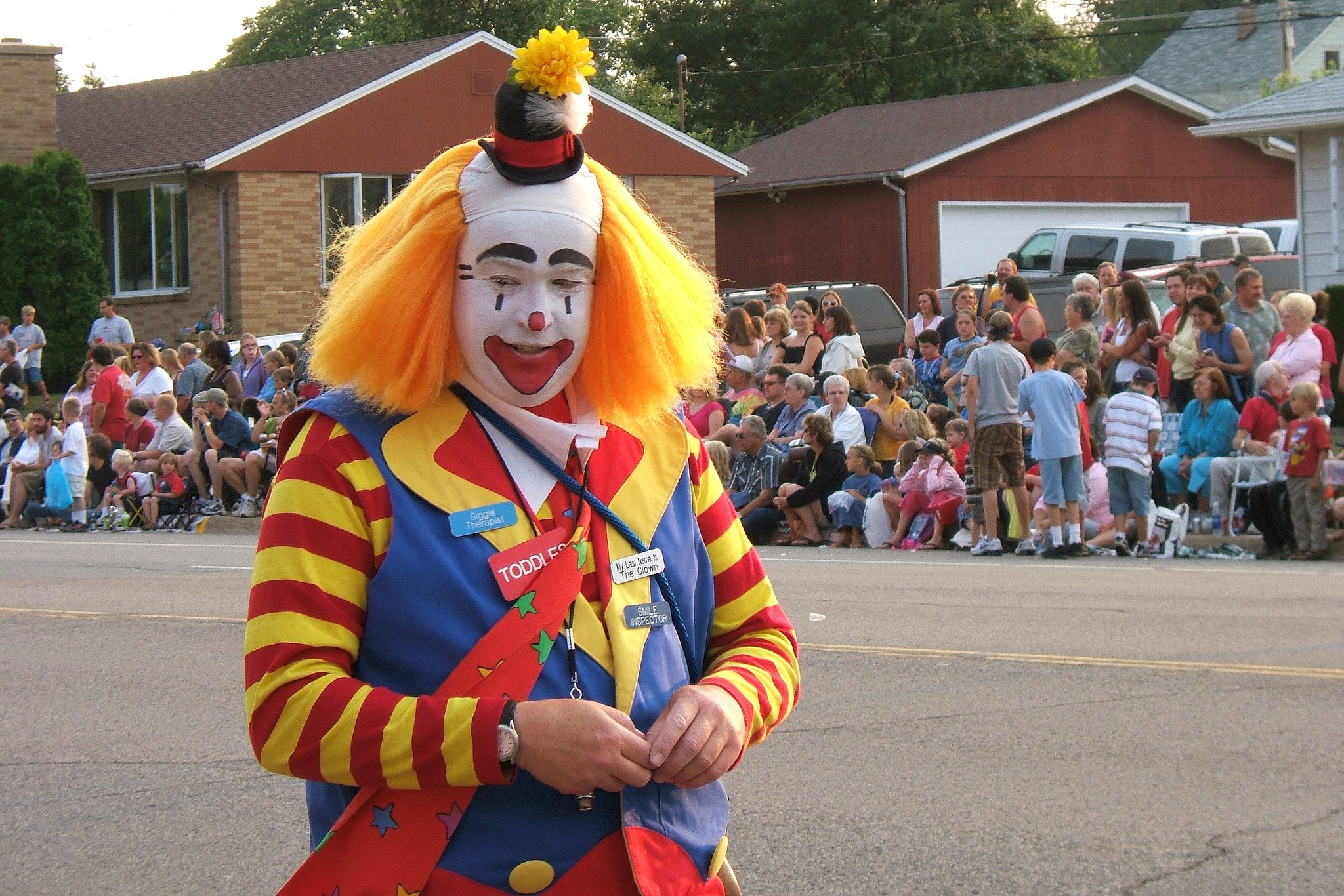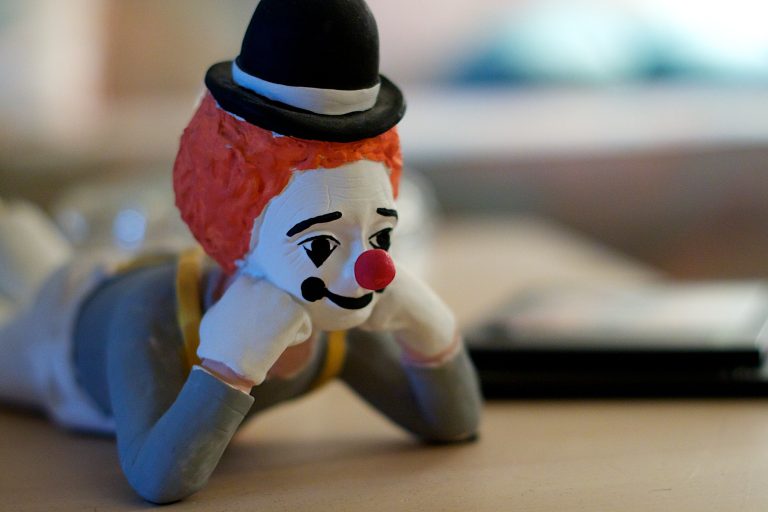While a clown is the classic character meant to bring joy and fun to a children’s event, more often than not he generates feelings of fear in young people — and mistrust among adults. What makes these outrageously goofy characters so creepy? Social psychologists call it deindividuation.
With all their makeup and colorful costumes, a clown’s true identity is completely masked, which makes those who encounter him feel uncomfortable — and it’s not just in their minds. When people are unrecognizable, they are likely to deviate from their normal, acceptable social behavior.
What is deindividuation?
Deindividuation is often described as the state when you become so absorbed into the norms of a group that you lose your sense of identity and personal awareness. Under these circumstances, one might loosen their normal sense of propriety in favor of the group mentality.
First coined by American social psychologist Leon Festinger in the 1950s, the term deindividuation is usually tied to the anonymity that comes from being part of a group. The negative effects include a loss of self-control and responsibility for our behavior. Deindividuation can also serve as a protective shield against judgment based on negative feelings like guilt, shame or fear.
Whether intentional or not, hiding one’s true self behind either a crowd or a costume is known to invite the relaxation of normal ethical standards, and it has been going on for thousands of years.
Success
You are now signed up for our newsletter
Success
Check your email to complete sign up
Since the state of deindividuation invites coarser behavior, it has long been employed in times of war. The military promotes both a group mentality, as well as strict regulations on dress and appearance. Stripping soldiers of their individuality can make them more effective fighters.
Another example of deindividuation happens during costume parties like those centered around Halloween and Mardi Gras. In costume, we often adopt a personality to suit a character that is unlike our own, which can lead to wild behavior.
Deindividuation is also common among netizens. One of the most dangerous things about internet relationships is that people can be completely anonymous. A potential date may pretend to be anyone or anything under the cover of a fake name or avatar.

Clowns and deindividuation
While most professionals make a point of showing their individuation at work, clowns do the opposite. Salesmen, teachers, service people and politicians usually present themselves openly, allowing people to judge whether they can be trusted. Of course, doctors often wear a face mask, but there is no shortage of anxiety about them either.
When clowns wear their exaggerated makeover and their ridiculous costumes, they become detached from normal humans. Their clown suits are usually wacky and out of proportion. Their makeup tends to fully conceal their faces and their round; red noses make them all the more bizarre.
Such an outfit completely masks the clown’s identity and individuality so they are likely to behave differently as well — and people can sense that.
Some may blame clowns’ creepy reputation on the many movies, books and other media that have depicted them that way; but that may just be an exaggeration of how the authors felt about clowns themselves.
How to deal with deindividuation?
However, clowns are not the only people at risk for deindividuation. Certain situations can make anyone vulnerable to losing touch with their individual values. If you ever feel like you’ve lost yourself behind a façade, you are most likely facing deindividuation.
In recent times, bad behavior has been tied to social situations as much as — or more than — the individual. It is said that our environment shapes our character. Just as children who come from families of abuse and violence are much more likely to become abusive and violent; social circumstances, according to social psychologist Phil Zimbardo, may prompt people to do things that are out of character — even actions that may be considered evil.
Unhealthy habits or unlawful deeds are often the result of peer pressure. While we may want to say “no” to something that is against our values, in a weak moment peer pressure can be hard to resist. For this reason, a good moral foundation is critically important.
To maintain an upright mind, be open with yourself and others. Pursue a noble path and seek wholesome recreation and entertainment. If you feel you’ve lost your way, a righteous cultivation path can lead you on a journey toward peace and serenity, and give you the confidence to always do the right thing.
READ MORE:
- What Is Karma and How Does It Affect Your Life?
- Dissolve Resentment and Discover Contentment
- Studying Our Subconscious – 5 Easy Techniques for Dream Interpretation
Ila Bonczek contributed to this report.














